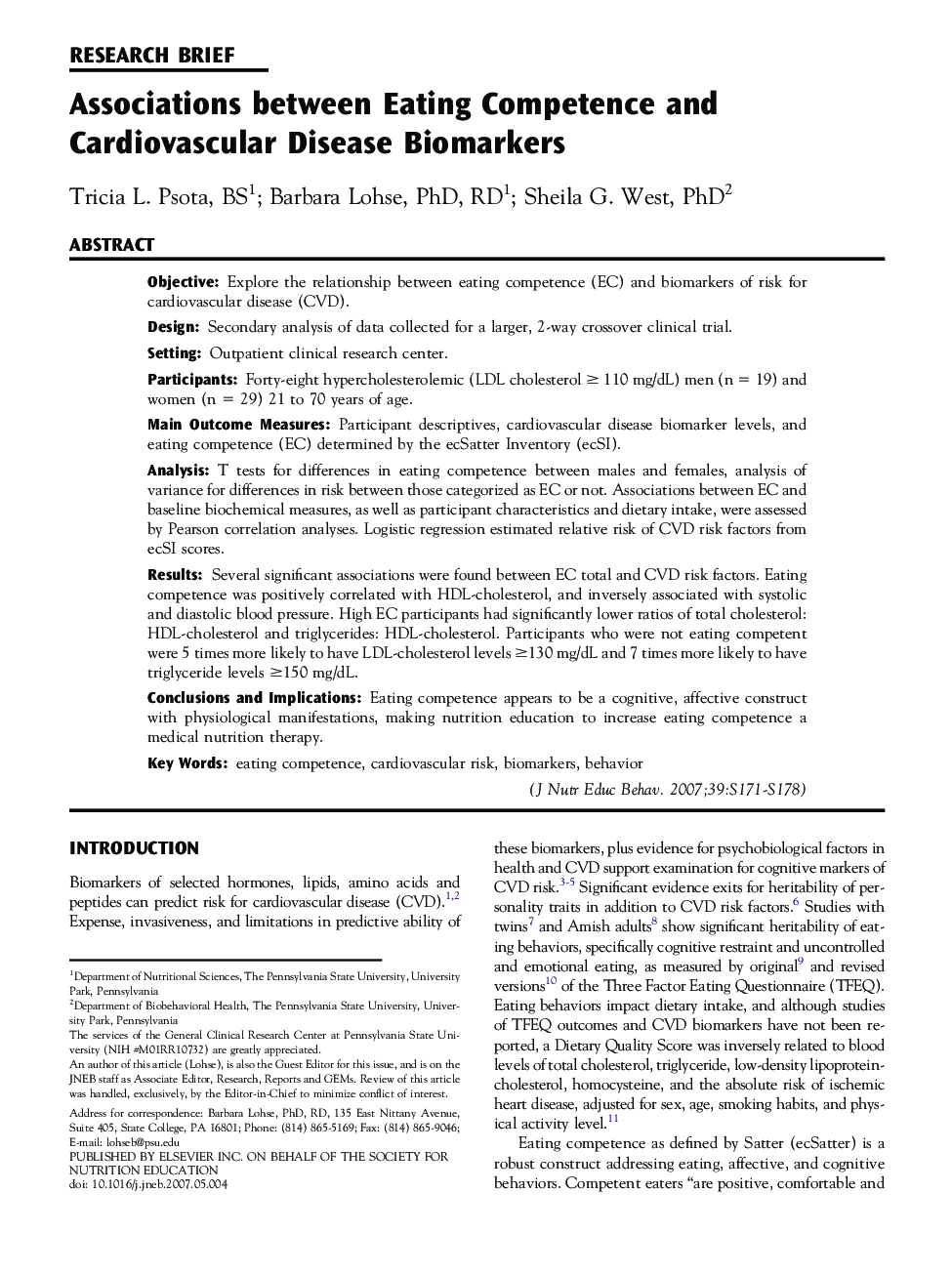| Article ID | Journal | Published Year | Pages | File Type |
|---|---|---|---|---|
| 362957 | Journal of Nutrition Education and Behavior | 2007 | 8 Pages |
ObjectiveExplore the relationship between eating competence (EC) and biomarkers of risk for cardiovascular disease (CVD).DesignSecondary analysis of data collected for a larger, 2-way crossover clinical trial.SettingOutpatient clinical research center.ParticipantsForty-eight hypercholesterolemic (LDL cholesterol ≥ 110 mg/dL) men (n = 19) and women (n = 29) 21 to 70 years of age.Main Outcome MeasuresParticipant descriptives, cardiovascular disease biomarker levels, and eating competence (EC) determined by the ecSatter Inventory (ecSI).AnalysisT tests for differences in eating competence between males and females, analysis of variance for differences in risk between those categorized as EC or not. Associations between EC and baseline biochemical measures, as well as participant characteristics and dietary intake, were assessed by Pearson correlation analyses. Logistic regression estimated relative risk of CVD risk factors from ecSI scores.ResultsSeveral significant associations were found between EC total and CVD risk factors. Eating competence was positively correlated with HDL-cholesterol, and inversely associated with systolic and diastolic blood pressure. High EC participants had significantly lower ratios of total cholesterol: HDL-cholesterol and triglycerides: HDL-cholesterol. Participants who were not eating competent were 5 times more likely to have LDL-cholesterol levels ≥130 mg/dL and 7 times more likely to have triglyceride levels ≥150 mg/dL.Conclusions and ImplicationsEating competence appears to be a cognitive, affective construct with physiological manifestations, making nutrition education to increase eating competence a medical nutrition therapy.
